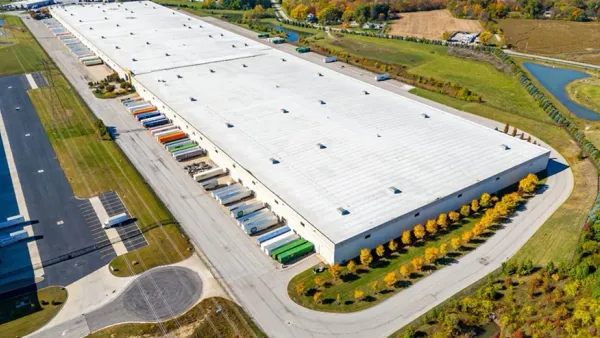Dive Brief:
- "Professionals on the frontlines of e-commerce" emerged as the fastest growing job area in LinkedIn's Jobs on the Rise report — an analysis of the growth in demand and raw number of jobs available.
- Frontline e-commerce roles grew 73% YoY between April and October 2020, marking the highest year-over-year growth reported. Currently there are over 400,000 jobs open.
- Top job titles include driver, supply chain associate, package handler and personal shopper, with Chicago, New York City and Washington, D.C., as the top hiring locations for these positions.
Dive Insight:
As many retailers and logistics companies needed workers to meet the swift transition to e-commerce to get products into the hands of customers during the pandemic, it resulted in a boom of recruitment and onboarding of thousands of new workers. LinkedIn's job numbers show that the demand for more workers is still there, even after peak season.
Between driver shortages and plant outbreaks and closures, 2020 hit supply chain operations hard, leaving companies scrambling to figure out how to stay in operation, safely and profitably.
The ISM Manufacturing Business Survey for December 2020 reported that supplier deliveries were delayed in good part to labor availability. The inability of manufacturers to attract and retain workers continues to disrupt service levels, said Timothy Fiore, chair of the ISM manufacturing business survey committee.
UPS hired 100,000 seasonal workers for the third year in a row for peak season. But hires started one month earlier because soaring e-commerce volumes and the prediction of a longer peak season. DHL Express also planned to hire 7,000 associates for peak season.
A scarcity of drivers due to retirements and a dwindling pool of job seekers put the flow of goods in jeopardy, not to mention people's hesitance to work out in public during a global health crisis.
To assuage health concerns, companies had to act quickly and ensure safety by redesigning work areas, investing in personal protective equipment and recalibrating work schedules to reduce the numbers of workers in a building at one time.
Warehouse managers invested in PPE, reevaluated sick leave policies and looked to leverage technology to trace and track employee movement and contacts concerning positive coronavirus cases, to ensure employee health and smooth labor operations last year.
Transport groups even requested that supply chain workers be prioritized in the rollout of vaccines to ensure that products continue to flow in a timely manner.
Retailers had to reposition their workforces from an in-store focus to e-commerce and omnichannel. Walmart initiated a reorganization in November to support its focus on omnichannel and laid off more than 1,200 workers.
However, the demand for supply chain expertise has not been limited to frontline workers. Companies have looked to bring in supply chain managers into the C-suite since stabilizing the supply chain has become a priority.















